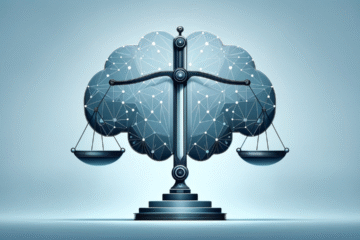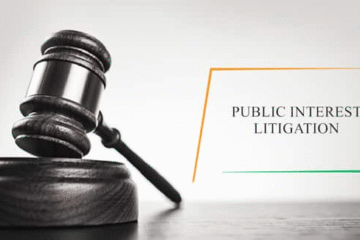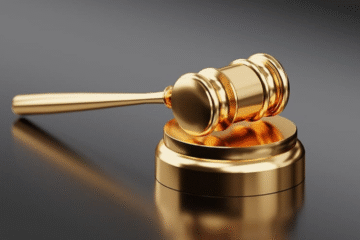
The Article 12 and Article 13 comes under the part 3rd of the Indian Constitution. This part of Constitution comprises of Fundamental Rights.
Particularly, Article 12 defines what is State and Article 13 specifies which act of state are regulated by the Constitution so that state will not misuse the power given to it by the Constitution.
In the era of monarchy, the kings used to recognized the rights and liberties of various subjects and provide the assurance that these rights and liberties will surely respected by the king and state. By passing of time and changing of the era, a human thinking developed that there are particular set of rights which can’t be compromised, and which must be protected by state. As the result of this observation first there was Magna Carta, then Bill of rights and then finally Fundamental Rights were consolidated.
In 1928, Motilal Nehru observed that we should guarantee Fundamental Rights in a manner that it can’t be widrawal in any circumstances.
Now, In India Fundamental rights are guarantee to the citizens and in certain situation to the non- citizen as well, this is also a type of guarantee that state shall not act against these Fundamental Right. If state act against Fundamental Rights or there is any infringing of Fundamental Rights than that person can sue the state.
So, here most of the Fundamental Rights provided to the citizen are claimed against the state and not against the private bodies.
From all this, these rises a question that what is state?
So here Article 12 defines State, and the definition given under Article 12 is applicable only to the part 3rd and part 4th of the Indian Constitution not to the rest of the Articles.
Article 12 definition in this part, unless the context otherwise requires, the State includes he Government and Parliament of India and, the Legislature of each of the State and, all Local authorities or Other authorities within the territory of India or under the control of the Government of India.
Explains, Article 12 states Following authorities will comes under “state”
- Government and Parliament of India
- Government and Legislature of the States
- Local authorities
- Other authorities
If we look at the first two authorities we can say that if Article 12 was not even there then also these two authorities will sure comes under the ‘State’
Here the ambiguous is Local Authorities and Other Authorities.
Local Authorities has been defines under Section 3 sub clause 31 of the General Clauses Act 1897, under this section bodies like Municipality, District board, Village panchayat are referred. Furthermore, all the Local self governing bodies come under Local authorities. So all the said authorities will be ‘state’ under Local authorities of Article 12.
Now the Dynamic nature of the State was kept in mind while interpreting the term Other authorities.
So here the question arises that is the Judiciary will be the state? Or the university will comes under state
In the case of University of Madras v/s Shanthabai, here the question was arises that the University of Madras which was build under the Madras University Act, will this university is comes under ‘state’? Here judges in the judgment said the term Other Authorities used under Article 12 should be Ejusdem Generis (of same kind). Judges here said that the authorities under Article 12 all are of same kind, first three authorities are of the governmental and sovereign nature. So ‘Other Authorities’ should derive its colour from the preceeding 3 Authorities under Article 12. In this case it was held that the Universities will not be ‘State’ as it is not of the governmental or sovereign nature.
Now according to this case to qualify as an Other Authority ‘Sovereign function’ is an inherent quality, if an Authority does not exercise the Sovereign function then that will be the State under Other authority.
In the case of Ujjambai v/s State of UP the approach of Ejusdem Generis was cancelled. Supreme court said this approach of Ejusdem Generis is too restrictive and also there is no common thread and no common genes between the first three category of the Article 12. So, this criteria was not accepted.
Furthermore, In the case of Rajasthan Electricity Board v/s mohanlalhere, The supreme court thought of formulating a new criteria. They said if a body or Authority is created under any law passed under Constitution then it will considered that body will have lots of power to affect Fundamental Rights and if a body have this much powers then this is necessary to consider that particular body as ‘Other Authority’ under Article 12. They also stated that this is not at all necessary that body of this nature will also perform any governmental or sovereign function, so now under this judgment this was held that universities will also come under the ‘State’ under Other Authorities.
So, further a question arises that what if a authority form under any statue but its mainly for any commercial purpose will these type of Authority will comes under State Article 12?
This question was answered in the case Sukhdev v/s Bhagatram, here the Supreme court said that the statutory bodies such as ONGC, LIC, IFC which was setup under statues are ‘State’ under Other Authorities.
Here we have very interesting case RD Shetty v/s International Airport Authority (AIR 1979 SC 1628), the International airport authority invited tenders RD Shetty was one of them who applied for the tender but due to some discriminating reasons his tender was not accepted so he filed a case for the violation of the Fundamental rights so here question arises that is International Airport Authority is ‘State’?
in this case court observed, and stated that that International Airport Authority was formulated under the Airport Authority Act, 1971 which is a Parliamentary Act, also observed that Central Government have so many powers over the IAA, the central Government was empowered to appoint the Chairman and other members of Authority, the entire capital amount that was required for the establishment of the International Airport Authority was invested by the central Government. On the bases of this observation court held that the International Airport Authority will comes under Other Authority of Article 12.
Here court also stated that, even if that body is any Private body but if government have its usual Degree of control over its management or Government have the Extra-ordinary financial assistance for that body then that Private body will consider as the instrument or agency of the State. Then indirectly that private body will also comes under ‘State’ under Article 12.
Finally, in the case of Ajay Hasia v/s Khalid Mujib, supreme court said Determining test is defines whether a body is acting as an instrumentality or agency of the state if yes then the body will consider as ‘Other Authority’ under Article 12.
This case give us Determining test by providing the 6 criteria to find out which authority will comes under ‘Other Authority’:
- Entire share capital is held by the Government.
- A great degree of Financial Assistance
- Monopoly status is protected by state
- Deep and pervasive state control
- Functions are of public importance or are related to governmental function
- A government department is transferred to that body or cooperation.




2 Comments
Khushwant · October 16, 2021 at 3:35 pm
Very nice 👍
Khushwant · October 16, 2021 at 3:36 pm
Your content is perfect and to the point . It is really helpful.